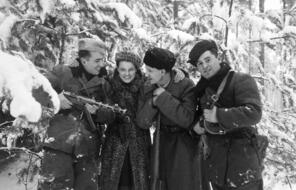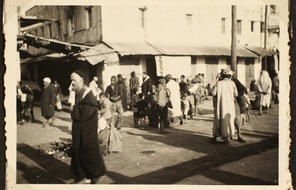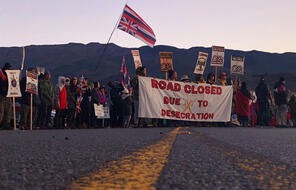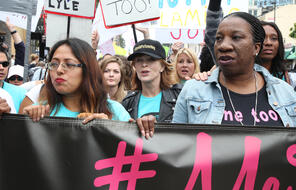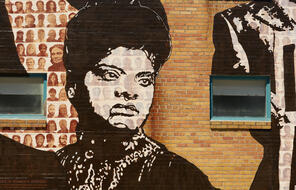Jewish Partisans in the Resistance
At a Glance
Language
English — USSubject
- History
- The Holocaust
- Resistance
Too often, students of the Holocaust are left with the impression that Jews were simply helpless victims, lacking the courage or means to fight back. It is common to hear people ask, “Why didn’t the Jews resist?” Nobel Prize–winning author and Holocaust survivor Elie Wiesel suggests reframing the question. He explains, "The question is not why all the Jews did not fight, but how so many of them did. Tormented, beaten, starved, where did they find the strength—spiritual and physical—to resist?"
In fact, Jews fought back against antisemitism and Nazi oppression in every way imaginable. They did so through personal acts ranging from documentation in diaries to the creation of art and poetry; through the organized dissemination of information about German crimes via underground newspapers, pamphlets, and photographs; by organizing revolts and providing aid and assistance through committees, food drives, and soup kitchens in ghettos; through such sacrifices as a rabbi’s courageous commitment to forgo safe passage in order to remain with those left behind; and through the armed resistance of those called partisans, who established fighting camps but also family camps that were a haven for young warriors as well as the elderly and the very young.
In this resource, we focus on resistance as seen through the lens of the firsthand experiences of Jewish partisans, women and men who fought in the armies of the Allies and the Soviet Union and in resistance brigades across Eastern Europe. (The Jewish Partisan Educational Foundation defines a partisan as “a member of an organized body of fighters who attack or harass an enemy, especially behind enemy lines; a guerilla.”) There were approximately 30,000 Jews actively involved in partisan resistance groups in ten countries throughout Europe. Jewish partisans were often young women and men who escaped ghettos and camps and fought in predominantly non-Jewish, but occasionally in all-Jewish, partisan groups.
The majority of Jews who escaped the camps and ghettos did so to survive, not to start or join resistance groups. Once they found safety in the forests or the mountains of southern Europe, some managed to join existing partisan groups, although deep-seated antisemitism prevented many of them from being accepted by other groups or forced them to conceal their identities while they fought. A small number of partisans formed all-Jewish groups, primarily to avoid this extreme antisemitism. Others escaped to unarmed “family camps,” a few of which acquired weapons for self-defense.
Why didn’t the Jews form organized resistance movements earlier, and why didn’t more Jews participate? Largely because the Germans were very skilled at hiding their plan for the systematic extermination of European Jewry. Contributing to this was the deception that Jews were being relocated to “work camps” that were providing manpower instrumental to advancing Germany’s war efforts. Without understanding the magnitude of the intended genocide, Jews presumed German economic rationality; from a purely economic perspective, it made sense to maintain this captive workforce. Many simply could not imagine that the Nazis would intentionally destroy this significant asset and were not aware that Jews were being murdered just outside of their communities or deported directly to camps built for the sole purpose of mass murder.
Furthermore, the Germans practiced disproportionate retaliation: for every German soldier killed or for every act of sabotage, hundreds might be murdered. Resistance in the ghettos was literally a last stand, endangering the lives of all who were living in the ghetto and resulting in its “liquidation,” the deportation of all its inhabitants. This kind of resistance could only be undertaken when one was near certain that the alternative was death.
Fighting back meant different things to different partisans. Some set their primary goal as saving Jewish lives; some hoped to slow down the Nazi assault in preparation for an Allied attack; others fought in the name of honor, justice, and revenge. Without knowing about these acts of resistance, students of the Holocaust will not have a complete understanding of how Jews acted under German occupation and the many ways in which Jews actively resisted and fought back against Nazi atrocities.
How to Cite This Reading
Facing History & Ourselves, "Jewish Partisans in the Resistance," last updated May 12, 2020.




